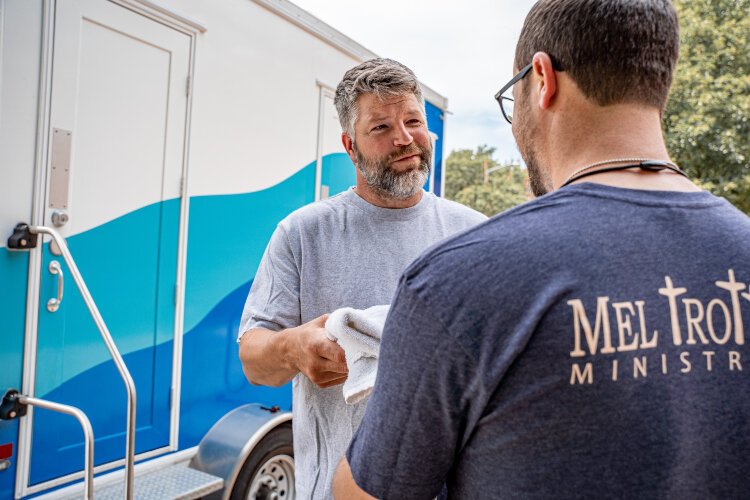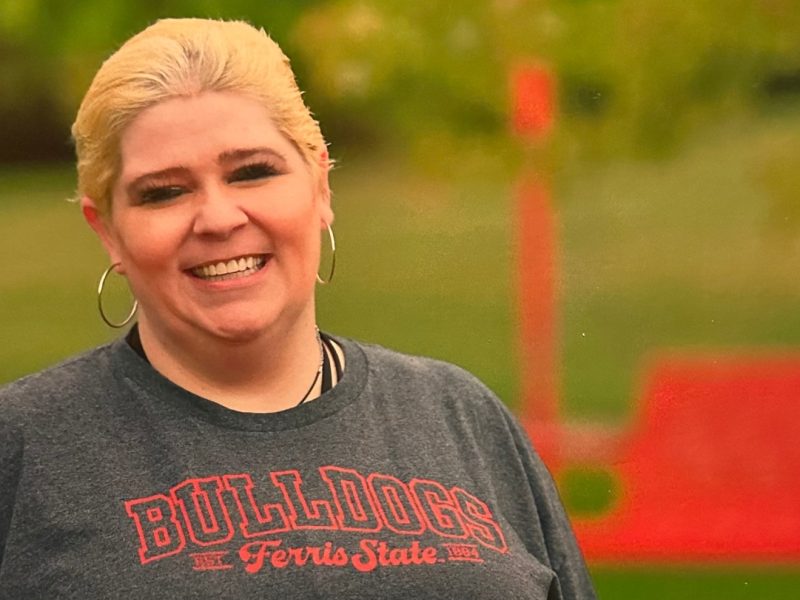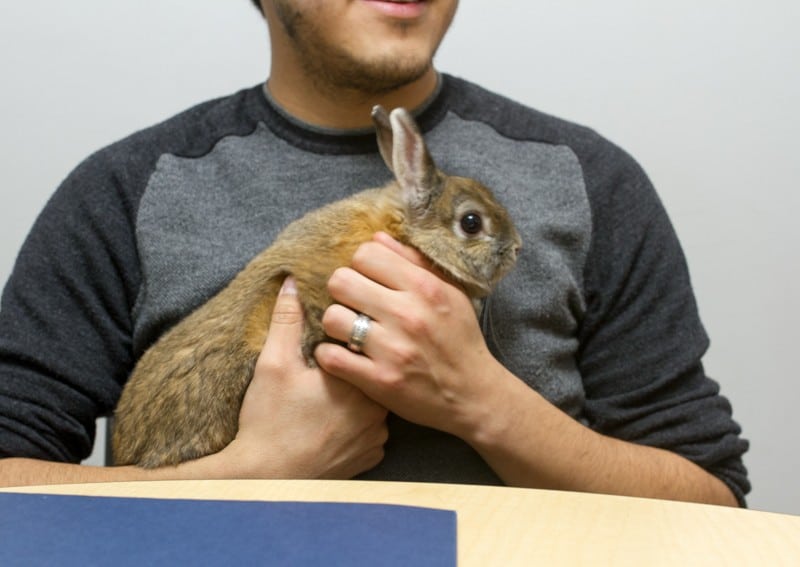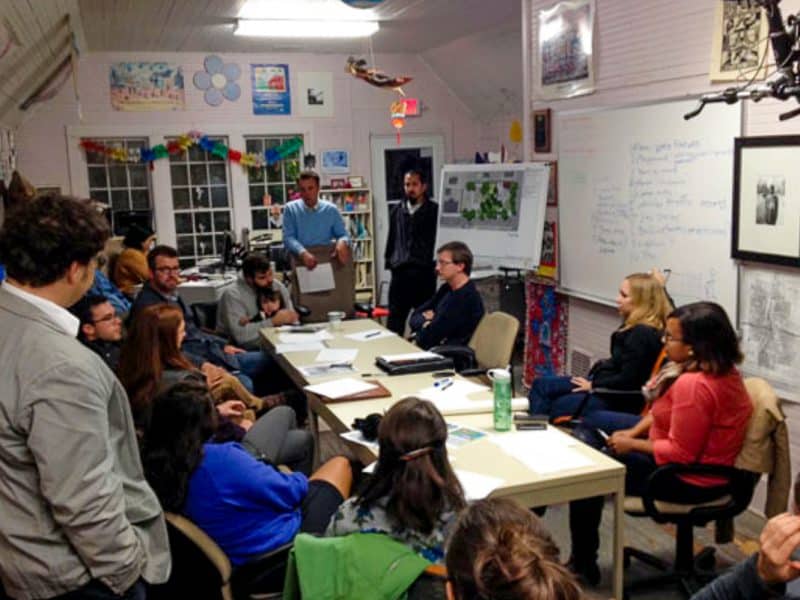Nonprofits comb the streets of Grand Rapids to provide the unhoused needed services
Nonprofits Mel Trotter Ministries and the Grand Rapids’ Homeless Outreach Team (HOT) comb the streets of downtown Grand Rapids in the wee hours of the morning searching for homeless people who’ve likely slept outside the night before.
Danielle Friedman could have worked a job inside a temperature-controlled office.
Instead, the clinical social worker for the community mental health authority in Kent County, Network180, combs the streets of downtown Grand Rapids in the early hours of the morning searching for unhoused people who’ve slept outside the night before. She does this regardless of the weather conditions. Rain, sleet, snow, stifling heat, Friedman is out there. It’s what’s known as proactive outreach.
“I feel humbled to go out and provide services to them and reduce barriers in a way that I think is really meaningful,” Friedman says.
Friedman is joined by another social worker, peer support specialist and peer recovery coach, all from Network180. They’re part of the city of Grand Rapids’ Homeless Outreach Team (HOT) that’s the brainchild of the Grand Rapids Fire Department when it was launched April 4, 2020 amid the COVID-19 pandemic.
HOT initially was comprised of a fire lieutenant and two Grand Rapids Police Department (GRPD) community officers; the city then contracted with Network180 in October 2020 to include mental health workers. Since then, GRPD has allocated its officers to other roles. More information about HOT is available at (616) 456-4240; Network180’s HOT line, (616) 825-5868; and Network180 mobile crisis response, (616) 333-1000.
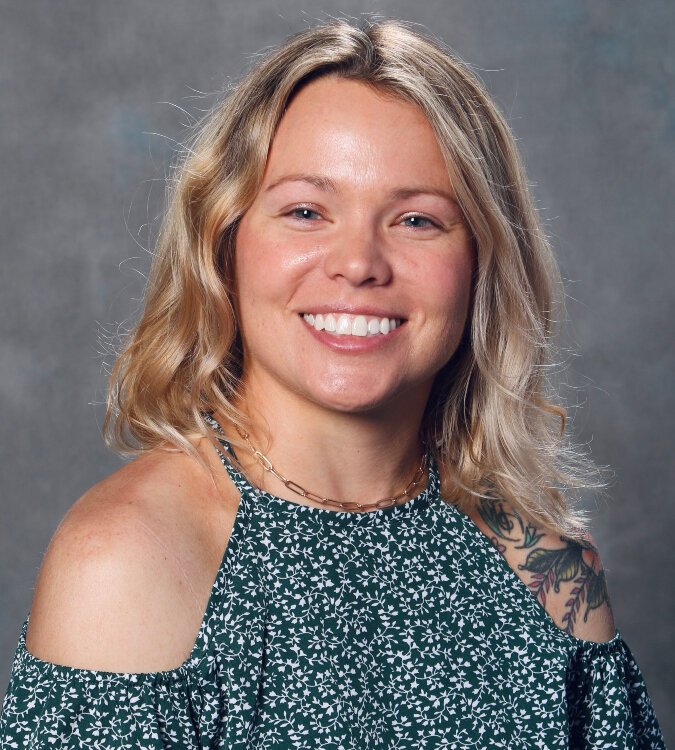
“HOT initially had firefighters doing the homeless outreach so they could educate people on being safe during the pandemic,” says Tammy Vincent, homelessness coordinator for the city of Grand Rapids’ community development department. “Over time, it’s become more of a mainstay street outreach and has grown in its capacity so that the goal is to be doing work not necessarily to educate on the COVID-19 pandemic or public health, but to do street outreach in order to help connect people with housing services.
Kent County has one of the highest rates of homelessness in Michigan, with 188 people per 100,000 residents experiencing homelessness. Black and Hispanic/Latino residents are more likely to experience homelessness than white residents.
But how many people is that? The Grand Rapids Area Coalition to End Homelessness reports the number of people experiencing homelessness in Kent County in 2024 was 1,139, a slight decrease from 2023 of 1,239 people.
Statistics aside, working with the homeless means needing to improvise from time to time.
“Sometimes, the best-laid plans go awry,” Friedman says. “It forces you to be creative and think outside of the box in ways I don’t think I ever would have in other areas of social work. There are lot things that in theory should work and I wish they did but they just don’t for this population.”
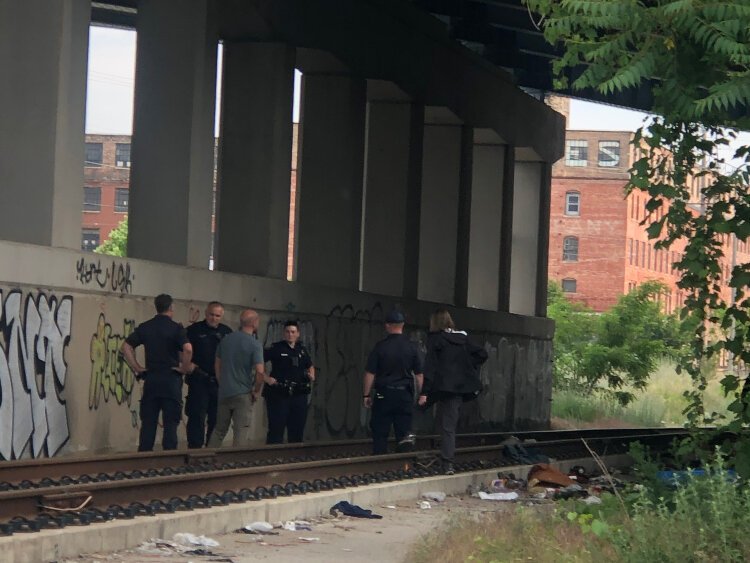
Members of the Grand Rapids’ Homeless Outreach Team interact with unhoused individuals.
Timing is important in Friedman’s line of work.
“There are quite a few areas in downtown where we know folks to be and we go out and check on them,” Friedman says. “Ideally, we’re making contact with them for the (beginning of the) day so they’re not getting a police contact or an ambulance is being called on them.”
Some argue living on the streets became more stringent when in 2023, the Grand Rapids City Council adopted two ordinances that make it illegal to loiter in any building if asked by the owner to leave. The ordinance bans people from blocking entrances and doors to buildings, and prohibits contact with someone in a way that makes them feel threatened or intimidated. A second ordinance prohibits unattended personal property from being stored in public places, including sidewalks, streets and parks, and enables the city to impound that property with or without notice.
There is not a one-size-fits all when it comes to doing welfare checks on unhoused people. Building bridges of rapport may lead to helping them find housing, enter a substance abuse program, receive medical services or, for some, something as basic as giving them a new pair of pants or socks, slacking their thirst or just being a listening ear.
“A lot of times people just want a bottle of water and to chat for 10 minutes and they’re good,” says Friedman.
Other times, outreach is an opportunity to get clean. Mel Trotter Ministries’ (MTM) Mobile Shower Unit is stocked with essential supplies like blankets, snacks, and hygiene items. MTM staff members visits various locations throughout the city of Grand Rapids, offering not just material support but also opportunities for meaningful connections. MTM can be reached at (616) 454-8249 or https://www.meltrotter.org/contact/.
Whether providing a meal to someone who initially seems closed off or offering a shower to someone in need, each interaction helps build trust and opens the door to further assistance. MTM’s partners with organizations like Network180, Dwelling Place and Hope Network so a wide range of services can be provided, from housing to employment support, and more, including transitional housing and workforce development training.
This is the way nonprofits should work, not as an islands onto themselves if the intent is to make the most of helping the homeless, say MTM and HOT officials.
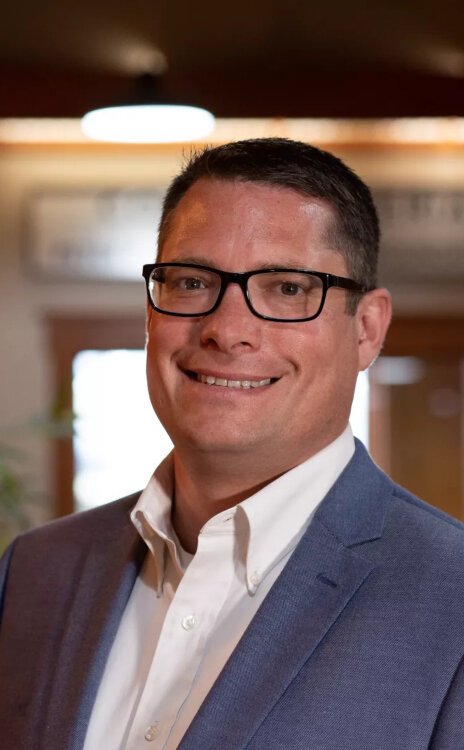
“I think any of those types of traumas (the unhoused experience) are served best when egos are set aside,” says Jeffery Dashner, Mel Trotter Ministries’ senior vice president of operations. “We know we can’t do it alone and we know we have a specific niche within the services that we provide.
“Mel Trotter’s focus continues to be upstream so people don’t end up homeless. We want to prevent it altogether,” adds Dashner. “We focus on our immediate shelter needs and that includes our outreach team where we’re not just content with people coming to us, we will go to them and meet them where they’re at. Invite them to come in and if that’s not something they’re comfortable with, we still provide resources and services to help get them into housing through our outreach team.”
There is of course no monolithic homeless person but the goal is address their immediate needs while working to remove barriers to end homelessness. At MTM, people are respected for who they are and this includes transgender people who may opt for the eight-bedroom unit dubbed Rescue and Restoration (RNR) at its mission headquarters at 225 Commerce Ave.
“There they can work on education, resumes, housing,” says Dashner, “but it’s all a choice. It’s some of our best success rates due in part to intense case management.”

